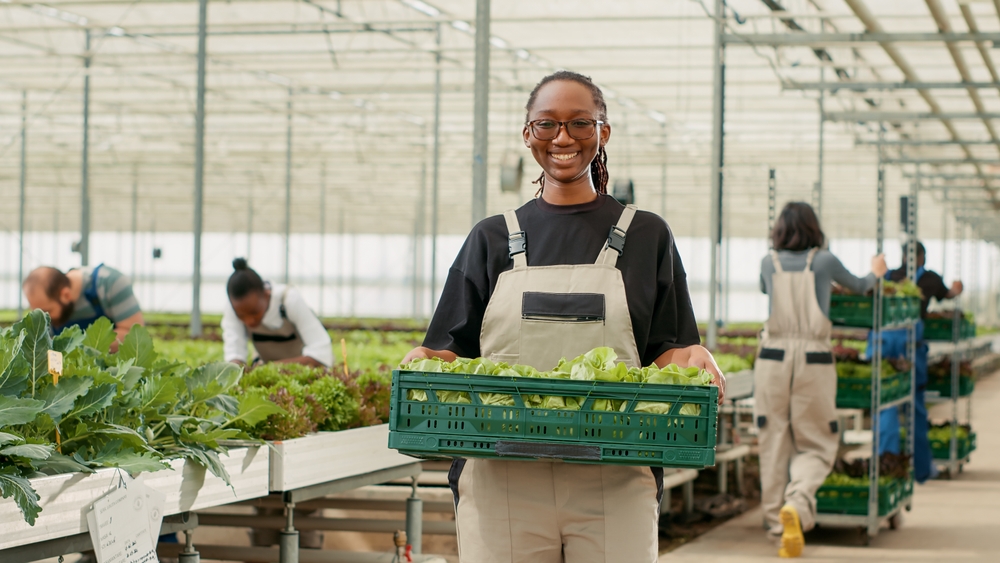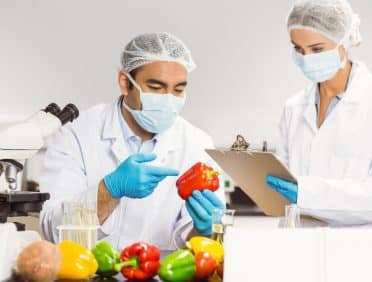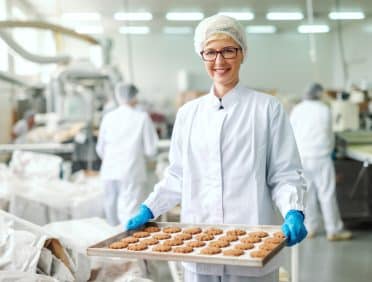Sustainable food production is an important part of business operations.
What is Sustainable Food Production?
Sustainable food production is widely understood to be a method of food production which uses systems and processes considered to be non-polluting, conserve non-renewable energy and resources, and is economically efficient. Sustainable food production is also considered to be safe for communities, workers and consumers, and does not compromise on the needs of future generations.
How Can We Help Sustainable Food Production?
There are several things we can do for anyone who wants to help sustainable food production.
The first thing that can be done is to use natural resources in an effective manner. This is all about taking the time to reduce the use of fossil fuels, optimise the use of water in production of foods, and to optimise the use of land and reduce the amount of land we convert for agricultural purposes. It is also a good idea to design effective energy and water-efficient food manufacturing sites.
The second thing we can do is to protect the quality of the natural resources on hand. This can include making sure people use fertilisers and pesticides properly to avoid the pollution of waterways and soil. However, it’s also about developing farming practices which help to safeguard water, land and energy resources, as well as forests and wetlands. You can also take the time to reverse overall soil loss, restore organic matter content in the soil, and cut down on greenhouse gas emissions to help maintain the air quality.
Next up, it is possible to help sustainable food production by protecting marine resources. By taking the time to implement sustainable fishing practices, we can restore the stocks of fish and eliminate the waste that comes naturally from fishing practices like discarding dead fish that aren’t fit for purpose. It is also possible to cut down on pollution of coastal areas from litter and fertilisers which would definitely help sustainable food production.
Something else which can also be done is to procure your food ingredients from sustainable, reliable sources. As an example, fish products should be certified by the Marine Stewardship Council, which works with fisheries across the country to promote sustainable fishing practices. The aim is to make sure that fishing at the current level could continue indefinitely, and the marine ecosystem is properly maintained. Where possible, palm oil products should be certified by the Roundtable on Sustainable Palm Oil. Another similar program may suffice, these types of initiatives are simply to make sure that palm oil products are created without producing large amounts of harm for the environment, such as the conversion of rainforest to agricultural land, known more colloquially as deforestation. It’s probably worth noting that similar initiatives do exist for things like soybeans and other commodities.
Other recommended activities include using environmentally efficient food packaging, optimising packaging that is in use, using recycled materials, and working with materials that have a lower environmental impact overall.
We could also promote the reduction of food waste, by using technical strategies like product reformulation to help extend shelf life, or the use of functional packaging to prevent the waste and spoilage of perishable foods. It should also be the goal of any company to reduce the amount of waste centre landfill sites by working with food recycling plants and donating excessive food to local charities.
Sustainable Food Production Practices
It’s important to make sure that you adopt and embrace sustainable food production practices. These make all the difference to your business and help to create a more economically and environmentally conscious brand.
Environmental Impact of Food Production
Impacts on Land Usage
Food productions can have an impact on land wastage and usage. Large areas of natural habitats are often destroyed to make way for agricultural land, in a process known as deforestation. This has severe, long reaching consequences for the environment and the planet.
Impacts on Diets
Sustainable food production is closely tied to the diet that a person consumes on a regular basis. If food production is not sustainable, then certain food items simply become impossible to source on a consistent basis, and the average diet of a person has to change.
Impacts on Self-Sufficiency
Self-sufficiency is an important part of sustainable food production. It’s important to try and remain self-sufficient when pairing food and producing it.
Factors of Food Sustainability
Food sustainability is an important part of everyday life. However, what is equally vital is recognising what factors contribute to sustainability of food.
Sustainable Farming Practices
Sustainable farming practices are a core part of sustainable food production. Farmers often have to meet incredibly demanding orders in order to keep their supply chains going, and as often resort to things like pesticides, growth hormones, and the using of nonrenewable resources to secure the latest crop of vegetables or a herd of animals.
Low-Impact Environmental Production
When it comes to environmental production, there is such a thing as low-impact sources of food. The way the food sources are produced and created is either low-impact or high-impact. Lots of foods are mass produced, and are done so in a very high-impact way – producing chemicals and toxic fumes. It’s important for the industry to begin adopting low-impact practices in order to maintain sustainable food production.
Promoting Good Animal Welfare
Animal welfare is directly tied to sustainable food production. One of the longest standing sources of contention between animal rights groups and the food industry is often how animals are treated. There are many animals that are kept in inhumane conditions, killed inhumanely, and mass spread exclusively for the purposes of food.
Many people argue that sustainable food production involves being kinder to animals, reducing the amount of food products created and making a commitment to humane killing. Some, particularly the extreme animal rights groups, advocate low-impact forms of veganism and plant-based substitutes.
Public Health Protection
Public health production is an important part of sustainable food production. When we create food in a sustainable fashion, we have to be mindful of the impact that it will have on public health. Chemicals and pest control resources are often damaging to public waterways, soil, and the environment as a whole. Toxic chemicals in the water supply, or in the air that we breathe are frequent in underdeveloped areas.
Grass-Fed Beef and Lamb
The thing about grass-fed beef and lamb is that it can have a major impact on the way that we interact with the environment. Lots of people advocate for more grass-fed animal products, and it has to be done in a sustainable fashion, otherwise the overall result in quality is immaterial compared to the environmental damage
Locally grown vegetables
Locally grown vegetables are an important part of sustainable food practices. Having to transport food across the world for the sake of meeting supply is not sustainable.
Locally Grown Fruits
Locally grown fruits follow the same ideology as locally grown vegetables. There needs to be reasonable efforts made to develop and grow fruits in their country of sale.
Climate Resilient Crops
Climate resilient crops are an important part of everyday sustainability. We have to make sure that we develop and produce crops that can grow in all conditions so as to not waste food damaged by harsh weather conditions.
Environmental Protection
Environmental protection is a core part of sustainable food production. It is necessary to safeguard the environment during food production.
Protecting the Natural Resources
Food production needs to be considerate of natural resource protection. This means that where possible, the focus has to be on using minimal fossil fuels due to their toxic chemicals, and avoiding polluting local areas as a byproduct of food production.
Protection of Marine Resources
Food production is to take into consideration the impact that the processes have on marine wildlife. Excess plastic is often found in oceans, and pollution can contaminate the seas and destroy marine wildlife and ecosystems.
Protection of Wildlife
The protection of wildlife has to be the primary focus for food production factories and businesses. Any food that you create has to be done so in a way that doesn’t impact the local wildlife, and things at risk of harm. This means taking the time to make sure that there are no contaminants in the local ecosystem, and coordinating with local charities to minimise the amount of waste products.
LearnQ Provides Sustainable Food Production Training
LearnQ provides plenty of support and training in sustainable food production for businesses.
Any business, regardless of what they do, if they work with food, needs training in sustainable food production. A business producing food naturally needs to do so in the right way to make sure that they avoid contaminating the local environment or contribute to unattainable food production. At the same time, businesses who sell food that they acquire from suppliers need to be able to recognise companies who are operating in unsustainable ways, and also to do their part in preventing environmental harm.
LearnQ is more than happy to supply training for any business that needs it, and can teach an entire team of workers how to spot, identify and implement sustainable food practices.
To download a .pdf of this blog, please click here













